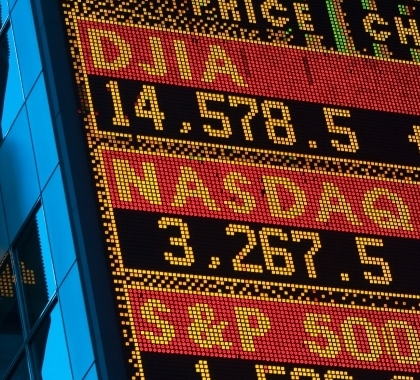Portfolio managers who give in to pressure to adopt so-called sustainable investment policies, investing the funds entrusted to them in renewable energy projects or divesting from fossil fuels, may harm their clients’ economic wellbeing for reasons unrelated to improving portfolio performance, thus violating fiduciary duties, concludes a new report by The Heartland Institute, which publishes Environment & Climate News.
Portfolio managers are being increasingly pressured by anti-fossil-fuel activists, often with government support, to invest according to the United Nations-initiated “Environmental, Social, and Governance” (ESG) investment criteria, says Martin Hutchinson, the author of the study titled “Fallacies of So-Called ‘Sustainable’ Investments.” Hutchinson worked as a merchant banker for decades for top European and American financial firms.
‘Legal and Moral Obligation’
Approximately $12 trillion are currently invested in accordance with ESG criteria, with nearly $2 trillion explicitly aimed at achieving environmental goals, the study notes.
Although ESG is meant to guide managers to improve the world while increasing their clients’ wealth, Hutchinson says the rules have become a major tool for those who believe humans are causing catastrophic global warming to destroy the fossil-fuel industry in favor of allegedly sustainable alternatives such as wind and solar industrial facilities, often at the expense of portfolio returns.
If individuals are willing to accept lower returns or higher risks on their investments for some cause they favor, that’s their business, but that’s not a legally or ethically acceptable choice for fund managers, says Hutchinson.
“Professional investors managing institutional portfolios for others, especially large retirement funds, have a legal and moral obligation to look first and foremost to their fiduciary duties to their clients,” Hutchinson writes. “They are ‘playing with other people’s money,’ not engaging in an exercise to promote their personal values.
“To properly fulfill their fiduciary duties, portfolio managers are obliged to … understand the material supporting sustainable investments is often biased,” writes Hutchinson.
Two Sources of Risk
The UN and its member governments have vested interests in increasing their funding and authority by painting dire climate-change scenarios while systematically ignoring mountains of well-documented scientific work that cast doubt on those notions, says Hutchinson.
Green investments have two major sources of risk: the normal risk from any investment that a company does not make sufficient money in the marketplace to provide competitive returns to investors or even to survive as a company; and in the case of “green” investments, risk stemming from the companies often being supported heavily by government subsidies, incentives, and even mandates.
Hutchinson points out investments dependent on government support run the risk of losing a crucial source of revenue or their customer base if the political winds change. For instance, dozens of companies in the renewable energy industry involved in the manufacture, sale, and installation of wind turbines and solar panels have gone bankrupt as government support was reduced or withdrawn entirely, harming investment portfolios.
In addition, Hutchinson cites evidence indicating hundreds of windmills built with the support and encouragement of government will soon be torn down as government subsidies are withdrawn in response to the public objecting to the high cost of electricity.
Expensive ‘Sustainable’ Energy
Hutchinson documents how high electricity prices resulting from government policies to promote supposedly sustainable energy initiatives in Australia, California, and Germany have reduced the living standards of the consumers and taxpayers who foot those bills.
“In 2016, households in Germany paid about 40 cents per kilowatt-hour for electricity, compared to the American average of about 12.5 cents,” due almost entirely to the country’s green energy policies, Hutchinson writes.
In coal-rich Australia, the premature closure of coal power plants in favor of renewable energy sources pushed electric power costs as much three times as high as in the United States.
High electricity prices discourage business and job creation, Hutchinson writes. The German chemical company BASF, for example, is investing in new facilities in the United States instead of Germany, largely because of America’s lower energy prices.
‘A Good Way to Lose Money’
Encouraging or even forcing investment fund managers to exclude fossil fuels from their portfolios or invest in renewable energy company stocks helps climate activists but can hurt investors, says Hutchinson.
“Promoting ‘sustainable investments’ is a stealth way for climate alarmists to fund their ideological agenda that is based on politicized, seriously-flawed science, but state and local lawmakers should resist being guilt-tripped into risking the pension funds of government employees on such investments that can harm not only portfolios but whole economies,” Hutchinson told Environment & Climate News. “Investing in ‘sustainable investments’ is a good way to lose money.”
University Endowments at Risk
Colleges and universities adopting sustainability investment strategies pushed by radical activists are damaging their endowments, says Rachelle Peterson, policy director for the National Association of Scholars and a policy advisor to The Heartland Institute.
“‘Sustainable investments’ are frequently unsustainable and bad investments—as evidenced by Harvard’s $1.1 billion loss on so-called ‘green’ investments,” said Peterson. “The sustainable investment movement pushes endowments into risky investments, many of which are profitable only on the basis of government subsidies.
“This wealth redistribution is a key indication the movement cares more about virtue signaling and political positioning than it does about fiduciary responsibility,” Peterson said.
Edward Hudgins ([email protected]) is research director at The Heartland Institute.
INTERNET INFO
Martin Hutchinson, “Fallacies of So-Called ‘Sustainable’ Investments,” The Heartland Institute, December 2018: https://heartland.org/wp-content/uploads/documents/SustainableInvestPB.pdf
Peter Wood and Rachelle Peterson, “Sustainability: Higher Education’s New Fundamentalism,” National Association of Scholars, March 25, 2015: https://heartland.org/publications-resources/publications/sustainability-higher-educations-new-fundamentalism





